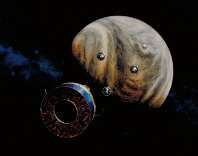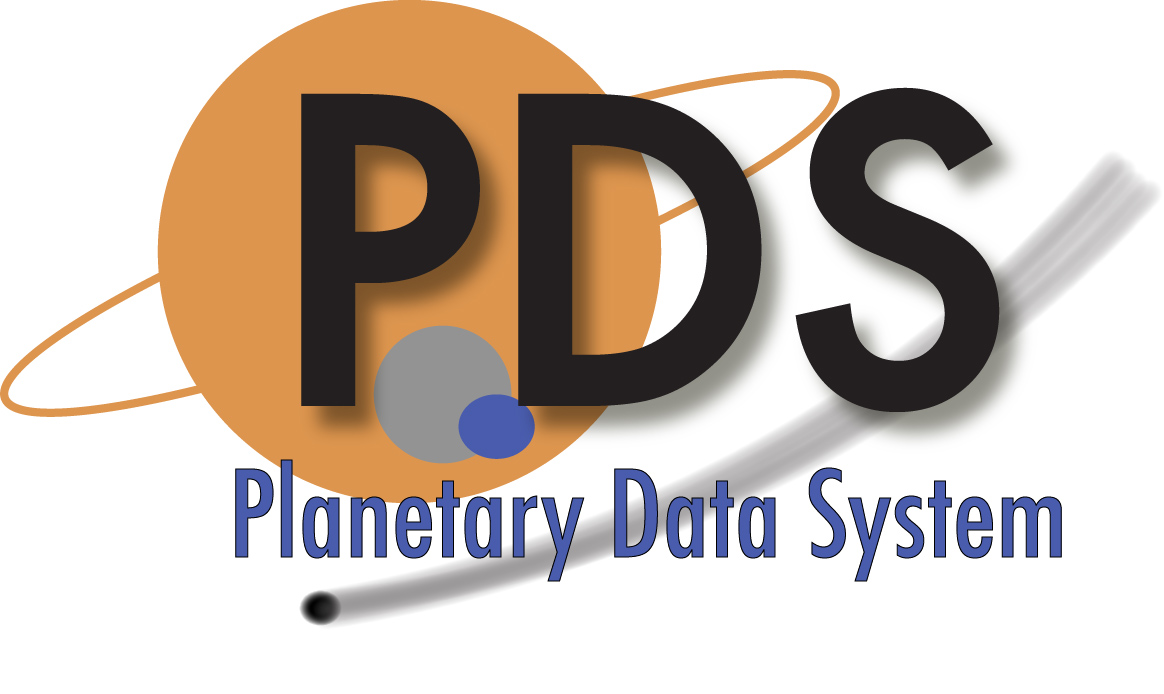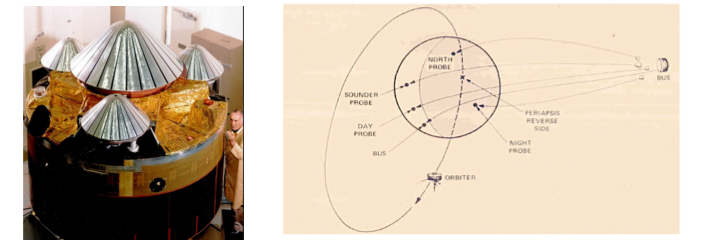
Introduction
The Pioneer Venus Mission consisted of two major parts: the Multiprobe and the Orbiter. The Multiprobe was composed of the carrier or Bus (290 kg); Sounder, a large probe (315 kg) and 3 smaller probes (90 kg each). It was launched on August 8, 1978 and reached Venus on December 9, 1978. Sounder was released from the Bus on November 15, 1978 followed by 3 smaller probes on Nov 19, 1978.
Pioneer Venus Probes and Bus - Atmospheric Entry **
All times in UT (= EST + 5 hours) on December 9, 1978
| Large Probe | North Probe | Day Probe | Night Probe | Bus | |
|---|---|---|---|---|---|
| Entry Time (200 km) | 18:45:32 | 18:49:40 | 18:52:18 | 18:56:13 | 20:21:52 |
| Impact Time | 19:39:53 | 19:42:40 | 19:47:59 | 19:52:05 | * |
| Loss of Signal | 19:39:53 | 19:42:40 | 20:55:34 | 19:52:07 | 20:22:55 |
| Impact Latitude | 4.4 N | 59.3 N | 31.3 S | 28.7 S | (37.9 S) |
| Impact Longitude | 304.0 | 4.8 | 317.0 | 56.7 | (290.9) |
| Solar Zenith Angle | 65.7 | 108.0 | 79.9 | 150.7 | 60.7 |
| Local Venus Time | 7:38 | 3:35 | 6:46 | 0:07 | 8:30 |
| *Bus signal at 110 km altitude | |||||
| ** Information from NSSDC web site. |
References
The initial descriptions for the mission, its goals and instrumentation is given in
Space Science Reviews, 20(3), 248-354, 1977a. https://link.springer.com/journal/11214/20/3 and Space Science Reviews, 20(4), 356-525, 1977b. https://link.springer.com/journal/11214/20/4
Colin, L., Encounter with Venus, Science, 203, No. 4382, 743-745, Feb. 1979.
An introduction to the JRG special issue covering results is given by Colin, L, The Pioneer Venus Program , Journal of Geophysical Research, VOL. 85, NO. A13, Pages 7575-7598, December 30, 1980, which includes a detailed bibliography.
Searching for Additional Publications via Author or topic
Access to Data
The Pioneer Venus Multiprobe - These data are listed in NSSDCA as Pioneer Venus Special events -
Note: This master catalog allows you to search for data set descriptions. Clicking on an entry in the left column gives you a description of the data. Clicking on Coordinated Request and User Support Office located in the right column of that page allows you to order the offline data. No data is listed for BNMS, BIMS, LMNS LCPS and MWIN
The Bus made measurements down to 110 km altitude. A region not sampled by the probes. It was equipped with:
BNMS - a neutral mass spectrometer
BIMS - ion mass spectrometer.
No data was archived
BIMS - ion mass spectrometer.
No data was archived
Sounder, the large probe was equipped with a parachute and carried seven experiments:
LNMS - A neutral mass spectrometer to measure the atmospheric composition
LGC - A gas chromatograph to measure the atmospheric composition
LSFR - A solar flux radiometer to measure solar flux penetration in the atmosphere
LIR - An infrared radiometer to measure distribution of infrared radiation
LCPS - A cloud particle size spectrometer to measure particle size and shape
LN/SN - A nephelometer
LAS/SAS - Temperature, pressure, and acceleration sensors
LGC - A gas chromatograph to measure the atmospheric composition
LSFR - A solar flux radiometer to measure solar flux penetration in the atmosphere
LIR - An infrared radiometer to measure distribution of infrared radiation
LCPS - A cloud particle size spectrometer to measure particle size and shape
LN/SN - A nephelometer
LAS/SAS - Temperature, pressure, and acceleration sensors
The three smaller identical probes had no parachutes and carried
LN/SN - A nephelometer
LAS/SAS - Temperature, pressure, and acceleration sensors
SNFR - A net flux radiometer experiment to map the distribution of sources and sinks of radiative energy in the atmosphere.
MWIN - Doppler information was received from all four probes that were targeted for different locations on the planet.
 PDS: The Planetary Atmospheres Node
PDS: The Planetary Atmospheres Node


